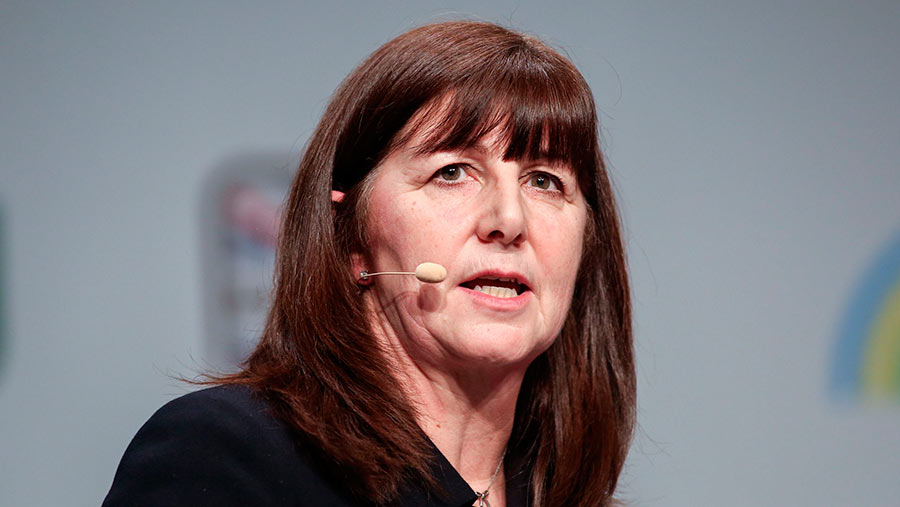Royal Welsh: Fears mount over farm policy ‘power grab’
 Lesley Griffiths © Ian Hinchliffe/REX/Shutterstock
Lesley Griffiths © Ian Hinchliffe/REX/Shutterstock A post-Brexit devolution power grab of Welsh farm policies, including animal health and farm payments, threatens to set the country’s food and farming sector back decades.
As farmers gathered at Builth Wells today (24 July) for the opening day of the Royal Welsh Show, there were accusations that Westminster is preparing to claw back power on several key aspects of agriculture policy.
Agriculture, fisheries and environment policies were all devolved to Wales under the Government of Wales Act 1998, the legislation that created the National Assembly for Wales.
See also: Subsidies must be earned after Brexit, Gove tells farmers
The UK government now wants any powers that are returned from Brussels after Brexit retained in Westminster to provide the “greatest level of legal and administrative certainty’’.
But Wales’ cabinet secretary for environment and rural affairs, Lesley Griffiths, is resisting this, arguing that devolution has allowed the devolved administration to tailor policies best suited to Welsh farmers.
“I’m worried the Withdrawal Bill, coupled with their [central government’s] lack of engagement with us to understand the needs of Welsh farmers, will mean this understanding is lost and the industry in Wales will move back decades,” she warned.
Fewer powers
The UK Withdrawal Bill in its current form would leave Wales with fewer powers, with Westminster taking control over issues such as farm payments and animal health, Ms Griffiths insisted.
“There is a risk that major decisions for Wales will be taken at a Whitehall desk. For Brussels now read London, and that is just not acceptable to us.”
Wales has a higher proportion of sheep farmers than England and 90% of Welsh red meat exports go to the EU. “I want to make sure the support they currently get is not jeopardised by Brexit,” said Ms Griffiths.
She will meet with Defra secretary Michael Gove at the showground on Monday (24 July) to discuss these concerns.
“I’ll be making clear this Bill has shown a complete disregard for devolution, as did his decision to cancel the next two planned meetings of UK agriculture and environment ministers.
“These meetings are crucial as the negotiations move forward and cancelling them shows a complete lack of commitment to working together.”
She said no reasons had been given for the cancellations, although one would have clashed with the rescheduled Queen’s Speech.
Tariff threats without a trade deal
The implications of Wales moving to the World Trade Organisation (WTO) default position of Most Favoured Nation trading status would result in a 46% tariff for lamb, 65% on beef, 42% on cheddar cheese and 53% on wheat.
Ms Griffiths said it was very important that the Welsh government fed into negotiations that would shape future trade agreements.
NFU Cymru said no deal with the EU – the UK’s main trading partner – was not an option for Welsh agriculture.
“Farmers, processors and everyone involved in the food industry in Wales need to make business decisions now with some idea as to what trading and marketing options will be open to them in 2019,” said the union’s president, Stephen James.
“They need to know whether or not their main export markets will be open for business on 29 March 2019, Brexit day.”
